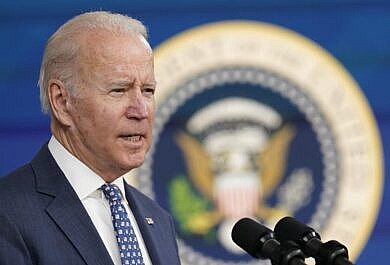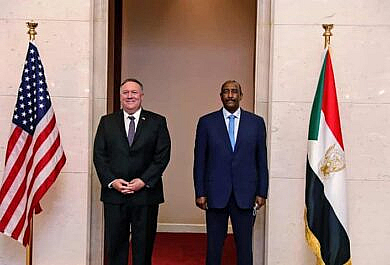As the end of the year approaches, governments around the world are grappling with divisions over government spending as new parties take power and multi-party coalitions begin to fray. One country – Japan – is grappling with a slush fund scandal of the government’s own making.
Summary
As the end of the year approaches, governments around the world are grappling with divisions over government spending as new parties take power and multi-party coalitions begin to fray. One country – Japan – is grappling with a slush fund scandal of the government’s own making.
- Japan’s governing Liberal Democratic Party (LDP) has been rocked by a campaign finance scandal that appears likely to force major changes to Prime Minister Fumio Kishida’s government.
- The faction of the LDP aligned with assassinated former Prime Minister Shinzo Abe is accused of gathering between 500 million and 1 billion yen in a secret slush fund that has allegedly been funneled to LDP lawmakers as kickbacks.
- The scandal has directly implicated two powerful figures in the Kishida government: Chief Cabinet Secretary Hirokazu Matsuno and Economy Minister Yasutoshi Nishimura. Matsuno is accused of taking 10 million yen in bribes, while Nishimura allegedly skimmed 1 million yen.
- Kishida’s government survived a no-confidence motion in the Diet on Wednesday. The prime minister plans to reshuffle his government on Thursday and is reportedly considering firing all members of his government aligned with the Abe faction.
- Argentina’s new libertarian president, Javier Milei, took office on Sunday and immediately announced a series of economic reforms designed to provide shock therapy for the ailing Argentine economy. Argentina’s economy has been weighed down by years of unsustainable government spending on social programs and 143 percent inflation.
- Milei’s new Economy Minister, Luis Caputo, announced the Argentine peso would be devalued by 50% against the US dollar, ending four years of an artificially-high exchange rate imposed by the left-wing populist Peronist movement that’s governed Argentina for decades.
- Milei also announced broad cuts to public spending, including fuel subsidies and other public works projects. He slashed the number of government ministries in half, and the elimination of nine ministries is expected to cut the public sector payroll by one-third.
- Germany’s governing coalition resolved a budget crisis that has paralyzed Berlin for weeks and nearly brought down the three-party alliance between the center-left Social Democrats (SPD), the centrist Greens and the fiscally conservative, socially liberal Free Democrats.
- Chancellor Olaf Scholz, the leader of the SPD, announced a bargain to cut green subsidies after Germany’s high court invalidated the government’s spending plan as it violated the country’s strict limits on increasing the national debt. The new plan will also see Germany increase its financial support for Ukraine.
- In Poland, new Prime Minister Donald Tusk, a centrist former top European Union official, was sworn in weeks after winning the general election over the governing right-wing Law and Justice (PiS) party.
- Tusk’s ascension was delayed after PiS attempted to hang onto power without a majority in the Sejm, the Polish Parliament. The new Polish premier is thought to be better positioned to unlock EU funds for Warsaw that have been blocked to punish the PiS for pursuing judicial reform.

- The Guardian covered Tusk’s ascension as Poland’s new head of government. Poland’s new prime minister vowed to “bring back billions of euros” of EU funds that have been frozen for years over a dispute between the EU leadership and the previous PiS government.
- CNN observed Milei’s devaluation of the peso “marks the first of several steps to tamp down that hyperinflation, which led Argentina’s central bank in October to raise its benchmark interest rate to 133%.” The International Monetary Fund hailed the shock therapy proposals as welcome measures.
- The New York Times noted Argentina “has been a symbol of economic dysfunction for decades, with bouts of severe inflation, debt defaults, bank runs, currency fluctuations and the political instability that often followed. Those cascading problems have largely been caused by severe economic mismanagement, by governments on both the left and the right. The latest economic crisis has its roots in the policies of the leftist former president Cristina Fernández de Kirchner, who financed large social programs and economic subsidies partly by draining reserves and simply printing more pesos.”
![]()
- National Review compared Milei’s inaugural address with Franklin Delano Roosevelt. “Like Roosevelt, he aims to wage war on poverty,” wrote John Fund. “Unlike FDR, his battle plan is more freedom, not more government.”
- “Argentina’s radical, anarcho-capitalist President Javier Milei may turn out to be pretty conventional. That comes with good and bad news for investors,” the Wall Street Journal observed. “The shift aligns the Milei administration with the economic orthodoxy followed by traditional pro-market parties and the International Monetary Fund, to which Argentina owes about $40 billion. In a statement, the IMF praised Milei’s ‘bold initial actions.’”
- Breitbart noted that while most of the “shock therapy” reforms proposed by Milei in Argentina involve cuts to government programs, “ Caputo announced that social programs that put money directly in the hands of the needy would increase the aid offered. These actions would join other announced plans to use a “chainsaw” on the federal government, as Milei campaigned on. Shortly after his inauguration, Milei announced, for example, that he would cancel all government publicity campaigns for at least a year, identifying them as unnecessary spending.”
© Dominic Moore, 2023






